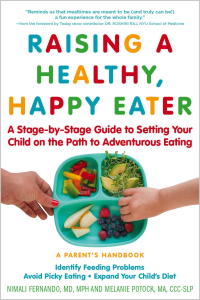A recent study on selective eating has received a lot of attention recently in the news, covered in places like The Washington Post, Jane Brody’s Well column, NPR, The Wall Street Journal, CNN, and many more. But the media aren’t the only ones talking…so are parents.
“Seriously?” “Eat what I served or starve.” That’s the response we’re hearing from some parents.
Let us explain why that sort of tough love might actually cause a kid to stop eating…permanently. For some children the desire to eat and satisfy hunger isn’t as strong as the food aversion. Food becomes the focus of not only the child’s fears, but the parent’s as well. The vicious cycle is difficult to understand for those who have never experienced it.
Most parents want their kids to be adventurous, healthy eaters, but many don’t know how to go about it. The old-school rule of “eat it or starve” may work for naturally eager eaters, but for more hesitant children, physiology (how the body functions) can interfere. If anxiety, a sensitive sensory system, or even something as common as heartburn is coupled with a demanding parent who insists a child finishes his vegetables – the results certainly will not be a child who loves vegetables. This combination may instead yield an anxious kid who associates physical and emotional discomfort with food. It can be debilitating and may lead to other diet-related health issues.
In defense of parents who have a child with extreme food aversions, often they’ve tried everything to help their child enjoy food. Understandably, some may have tried a little tough love because they just wanted their child to eat. Many are at their wit’s end before eventually seeking professional help from a pediatric feeding specialist. From there, it’s a slow process to bring a child back to nutritional and emotional health.
So for parents who don’t have a child with food aversions and consequently are aghast at this “ridiculous” study – be thankful you didn’t have to parent a child through the trials of selective eating. The research is clear. Tough love in this case is not the answer. Let’s offer these kids a lifeline, so they can enjoy happier mealtimes and grow to be healthy in all aspects of their lives.

Pediatrician Nimali Fernando and feeding therapist Melanie Potock, authors of the forthcoming Raising a Healthy, Happy Eater (October), specialize in showing parents the way to joyful, nutritious mealtimes. Their proven strategies direct families past every roadblock, whether selective eating, different parenting styles, special needs, or medical issues such as sensory disorders.
Melanie Potock, MA, CCC-SLP, is an international speaker on the topic of pediatric feeding disorders. With more than 15 years of experience as a food therapist and eating coach for all children, including those with special needs, she is a go-to resource for anything related to kids and food. In 2010, Potock launched My Munch Bug, where she teaches parents and professionals how to raise healthy, happy eaters. Her advice has been shared in national publications, including Parents magazine, and popular special needs websites such as Generation Rescue.
Nimali Fernando, MD, MPH, is a pediatrician and the founder of the non-profit Doctor Yum Project, which teaches kids and their families how to cook and eat more healthfully (and to which the authors will donate a portion of their royalties). Her innovative practice, Yum Pediatrics, has gained local and national attention for its unique approach to keeping children healthy with a better diet. The first of its kind, it features a teaching kitchen, instructional garden, and other educational resources, making it a hot-spot for health education in her community. She is also a Fellow of the American Academy of Pediatrics.





4 Responses to Picky, Picky Kids: Eat It or Starve!